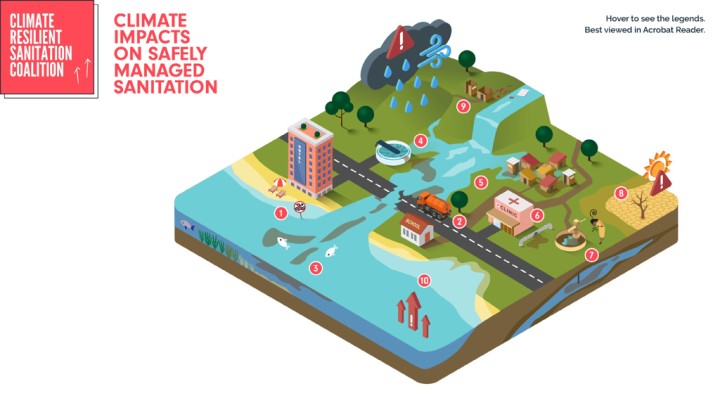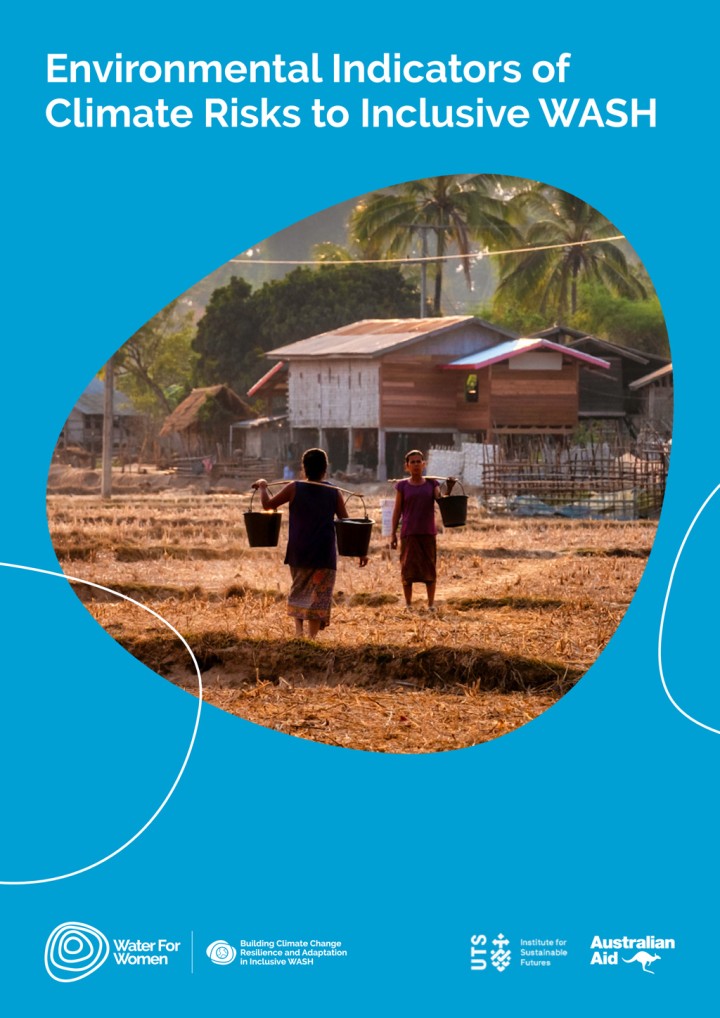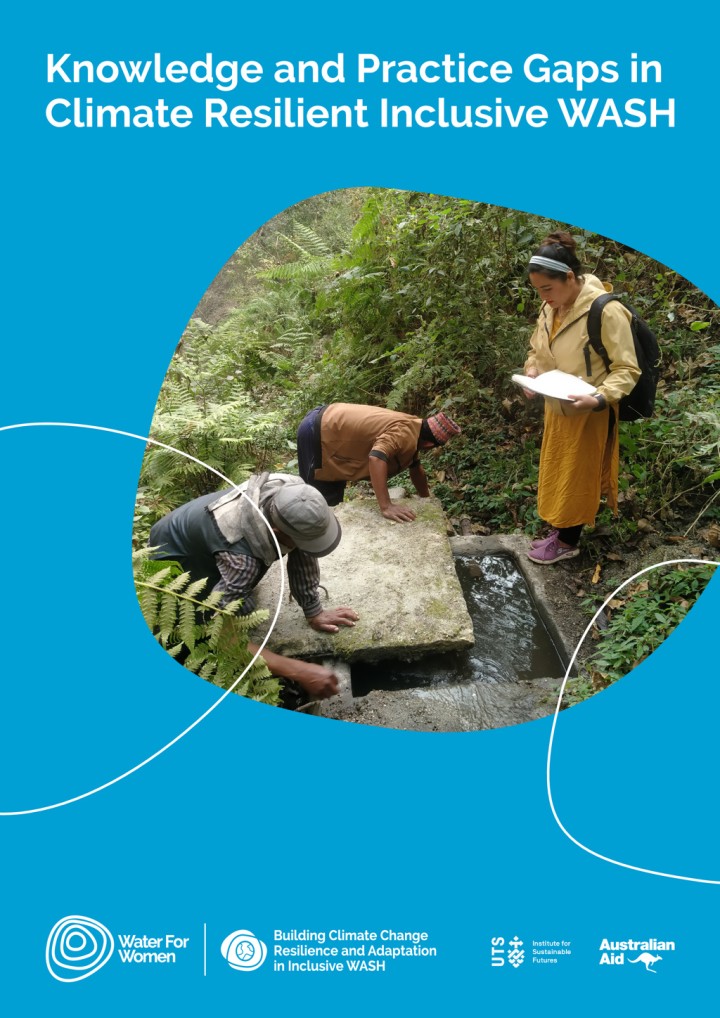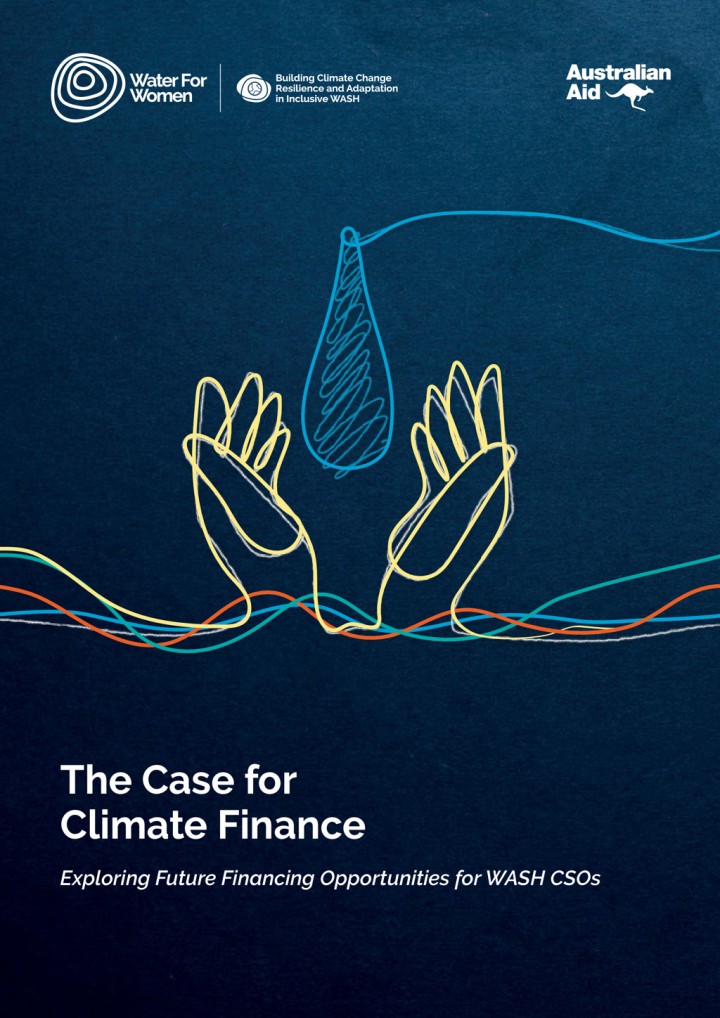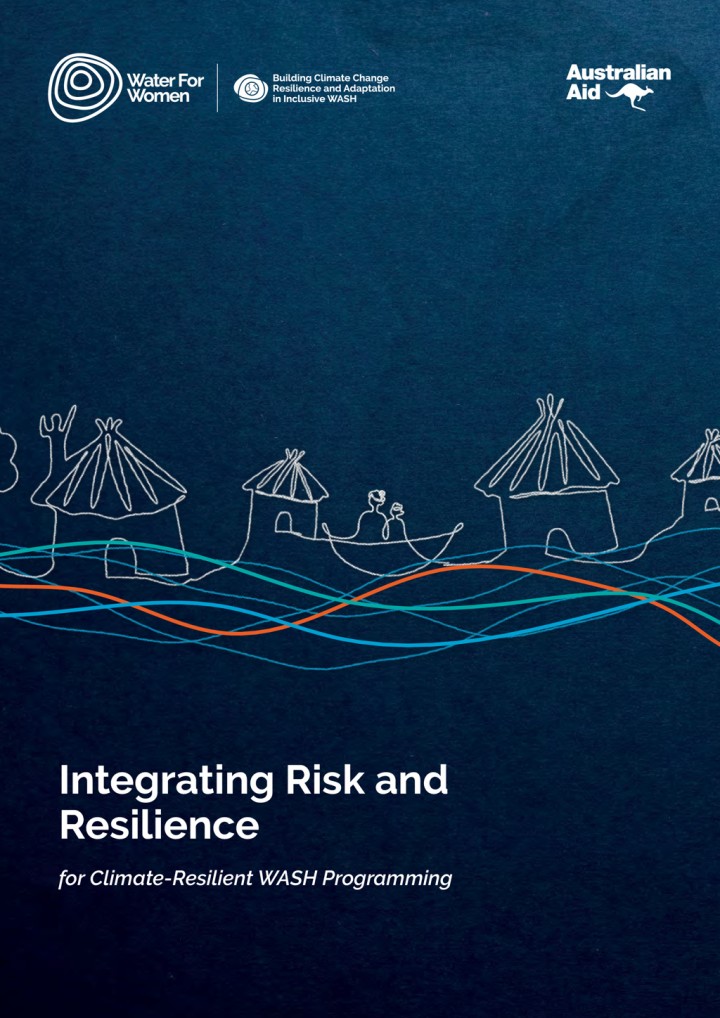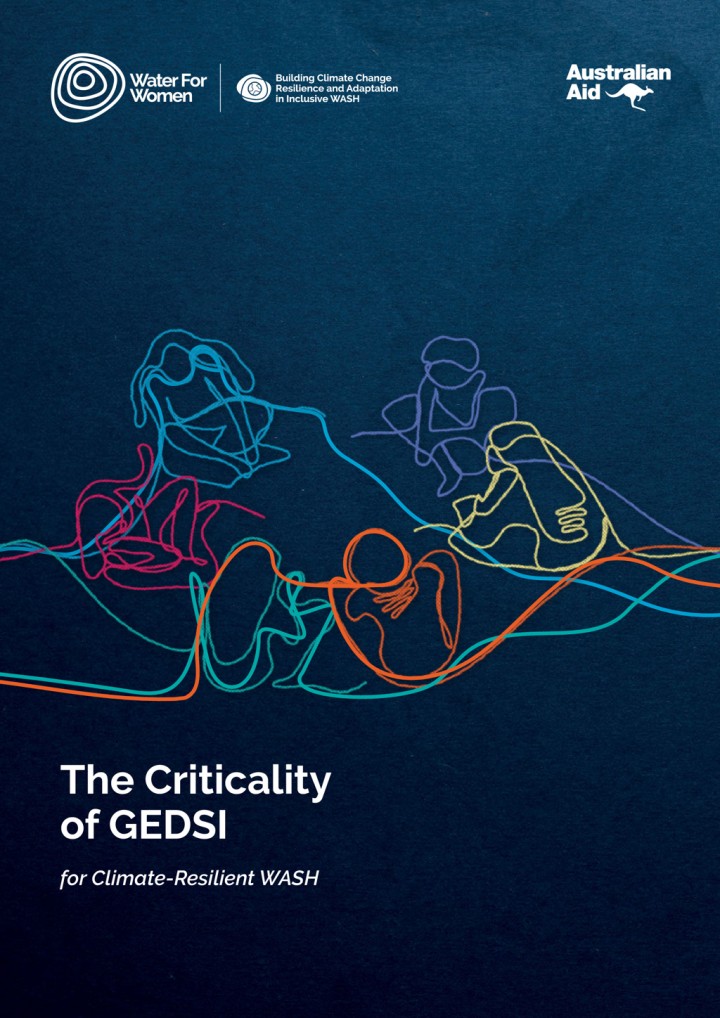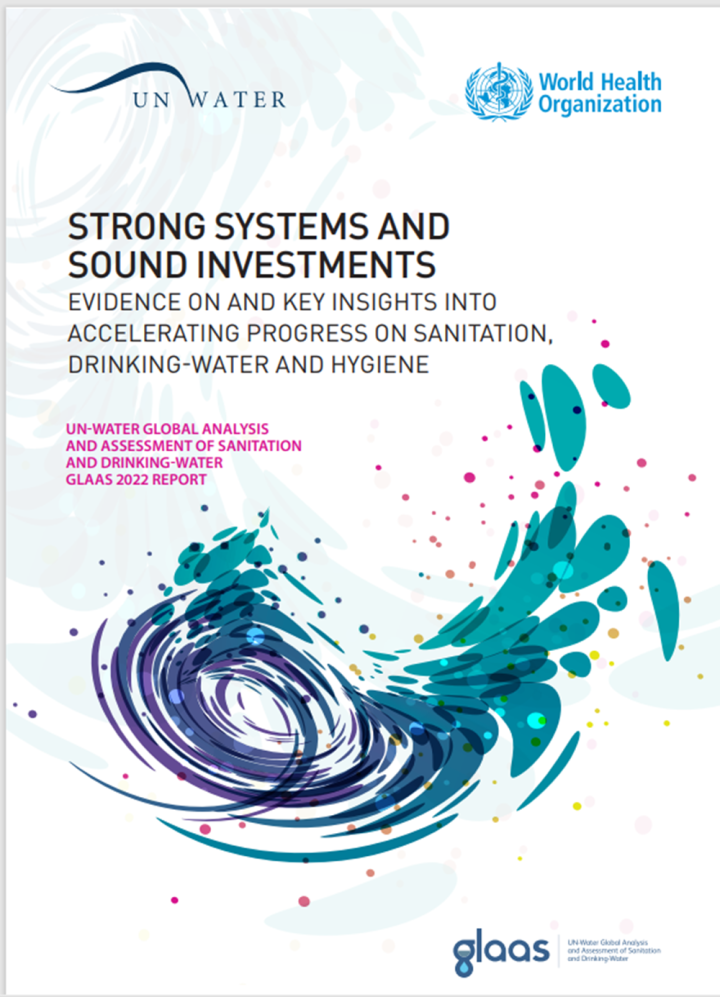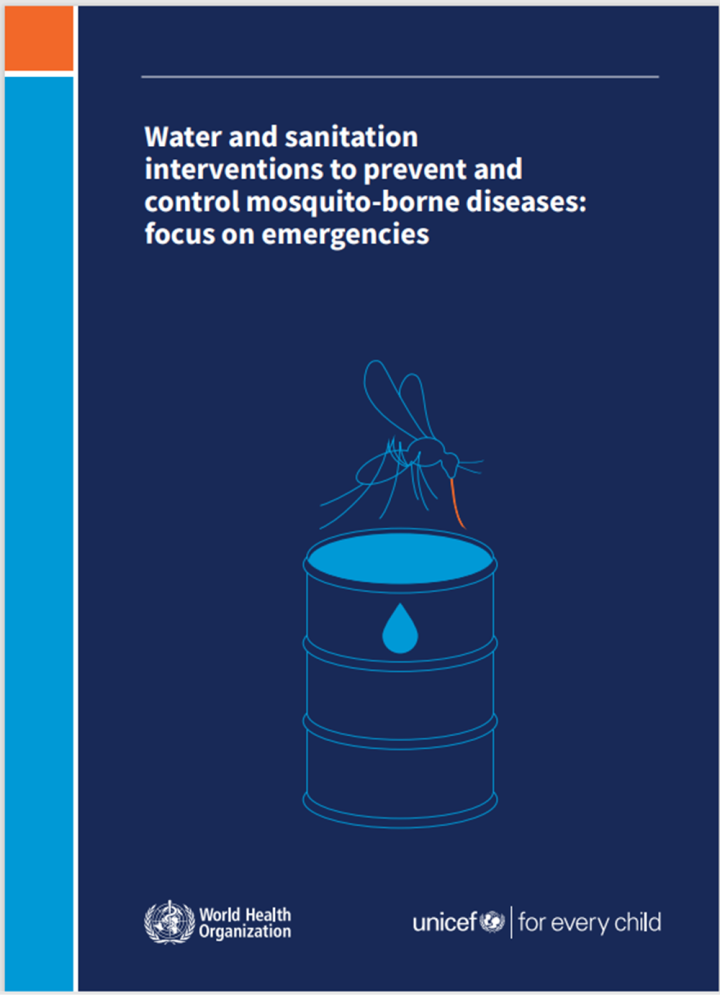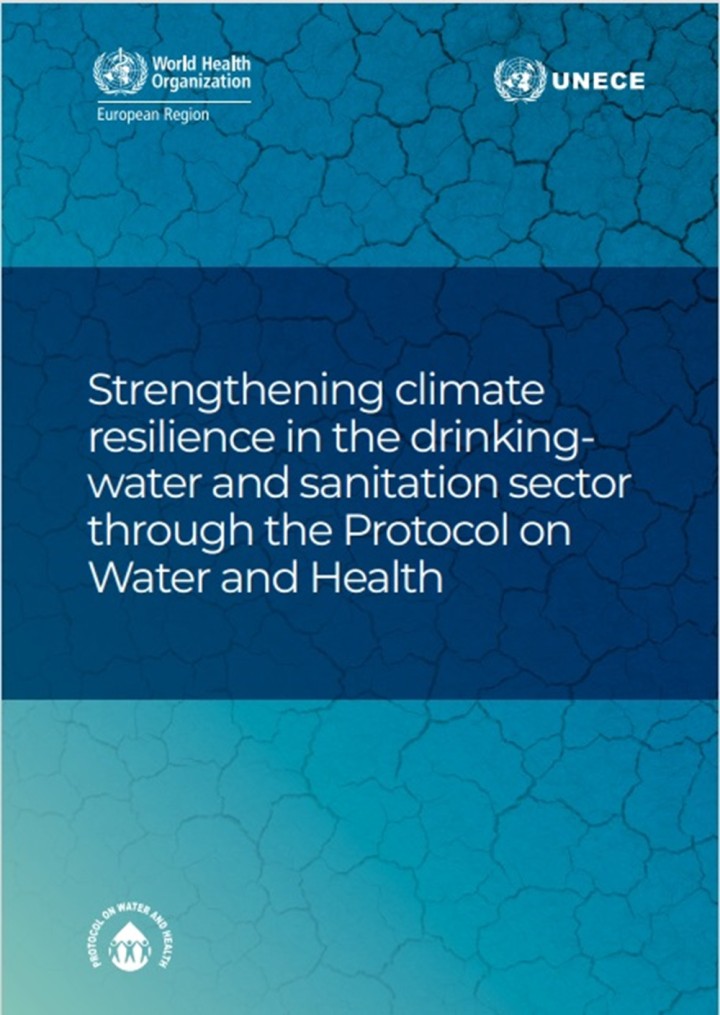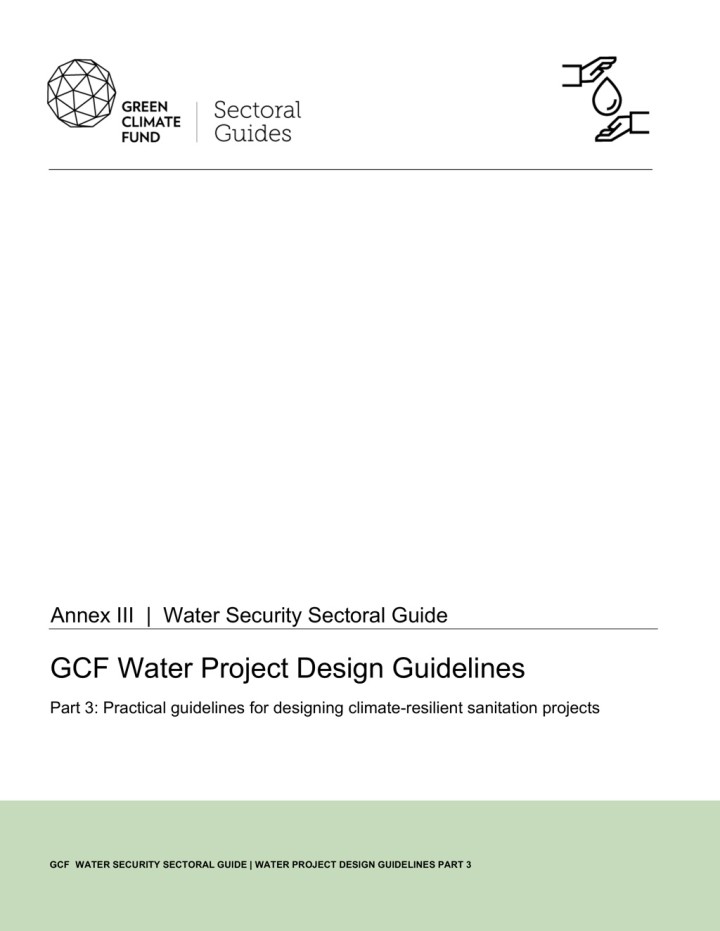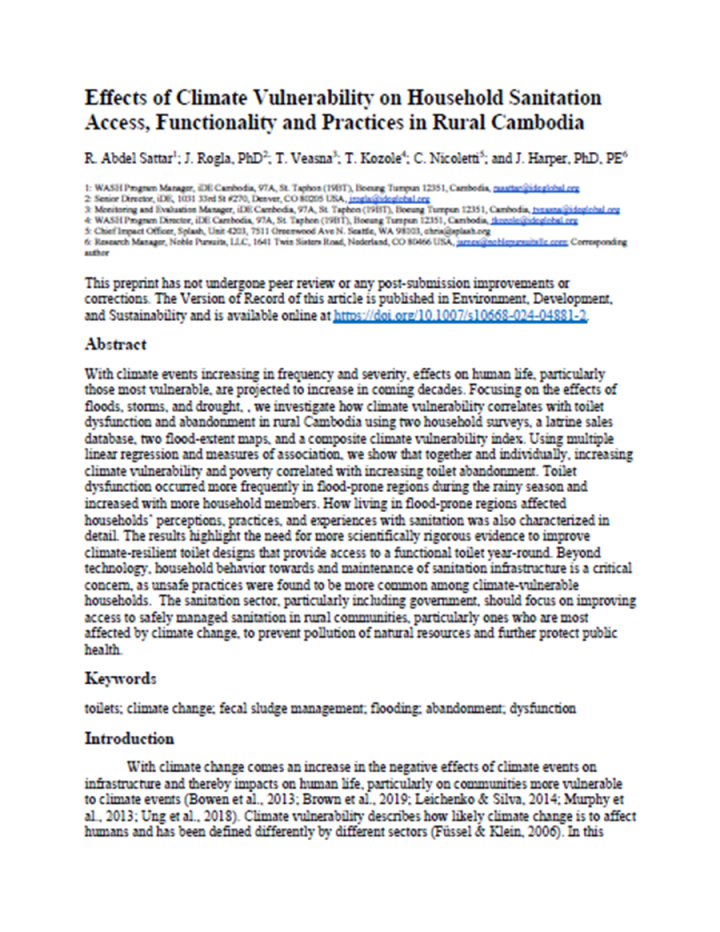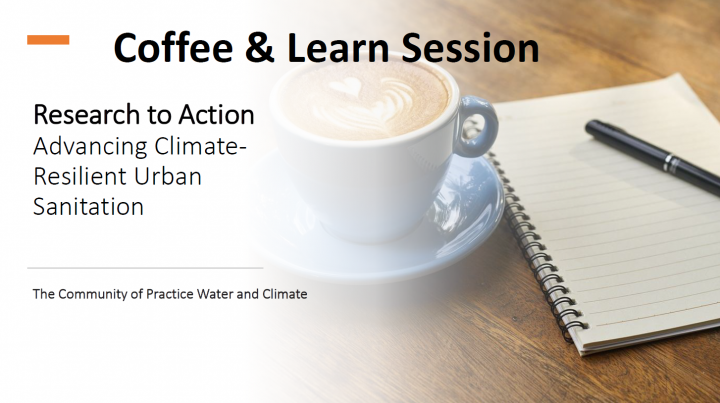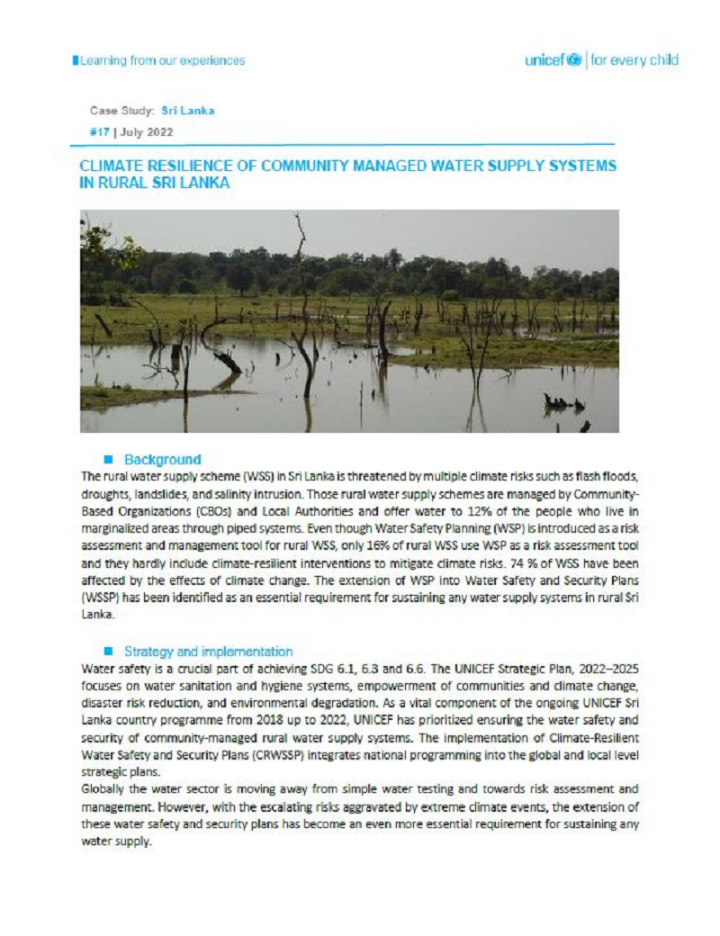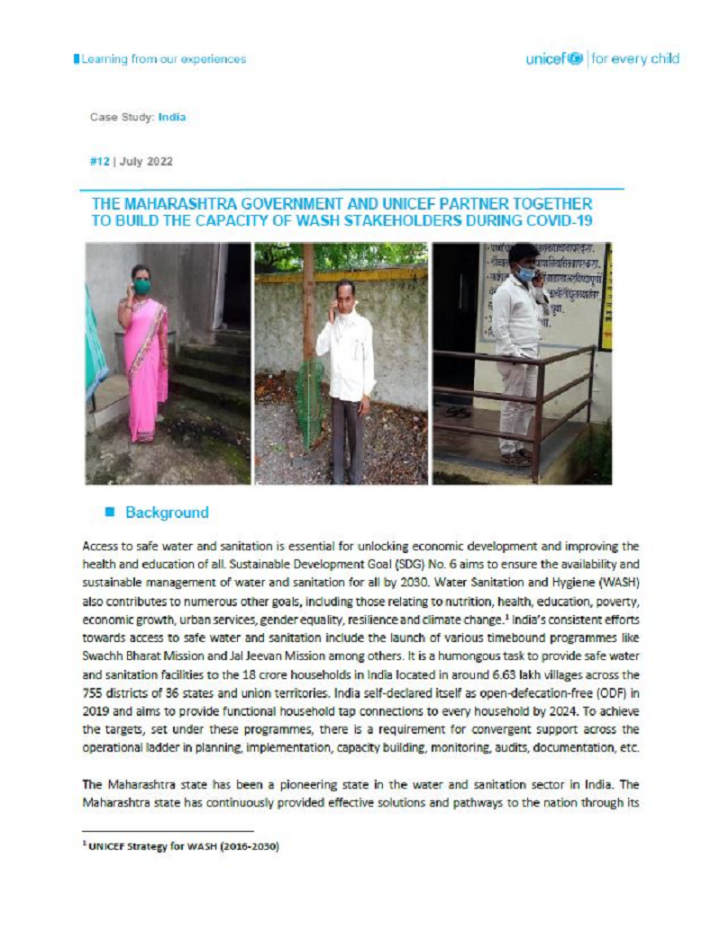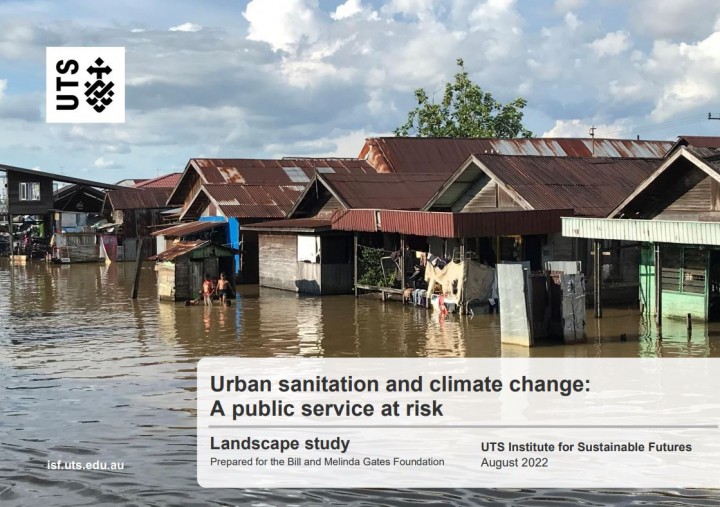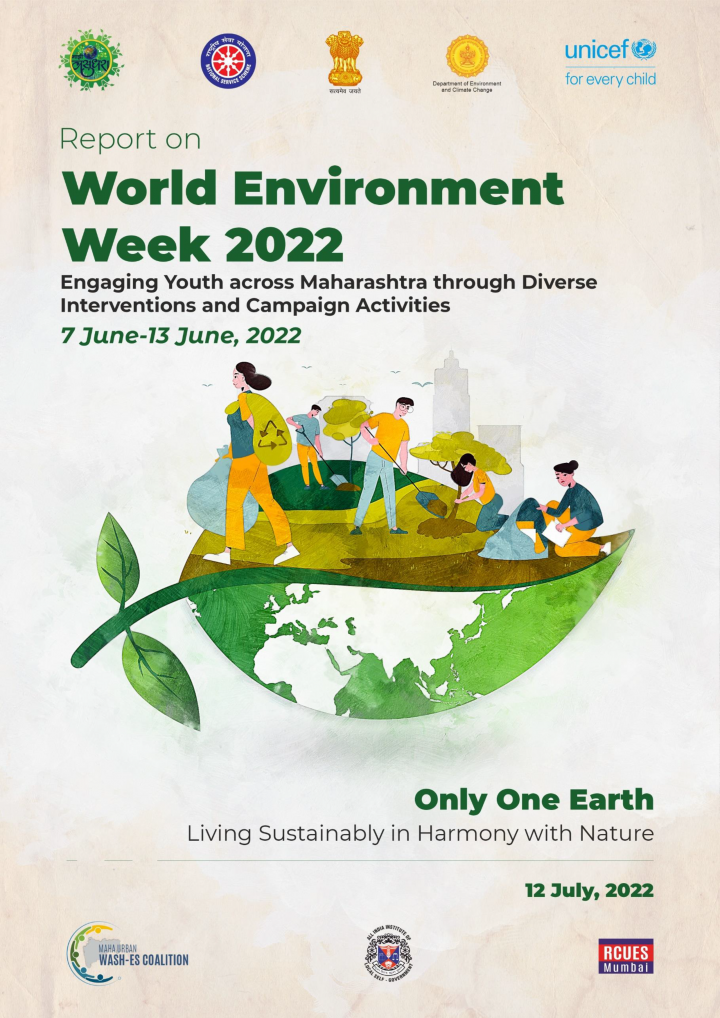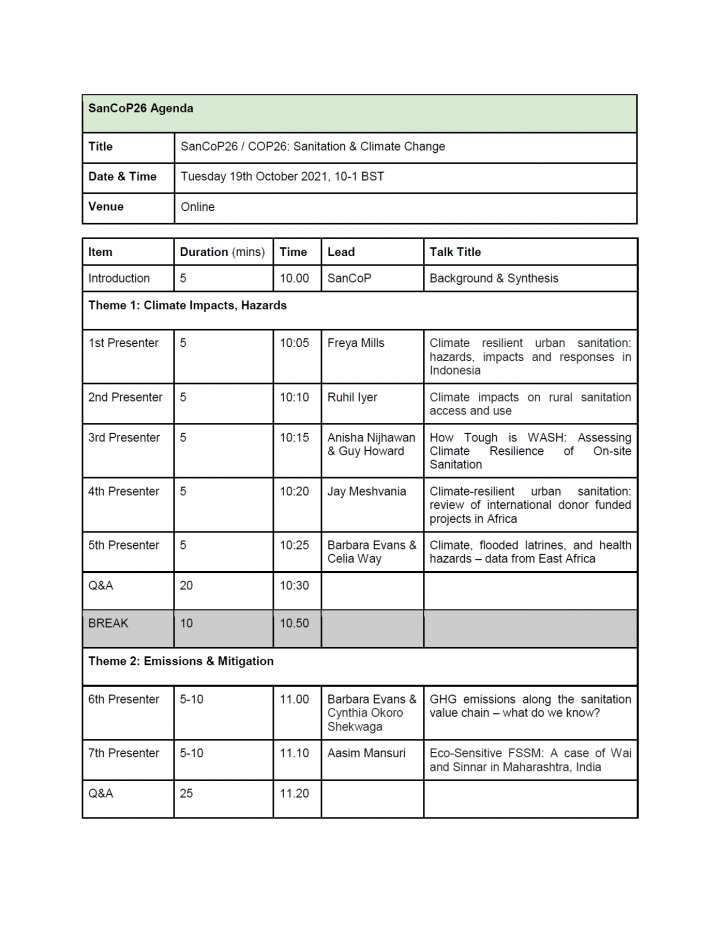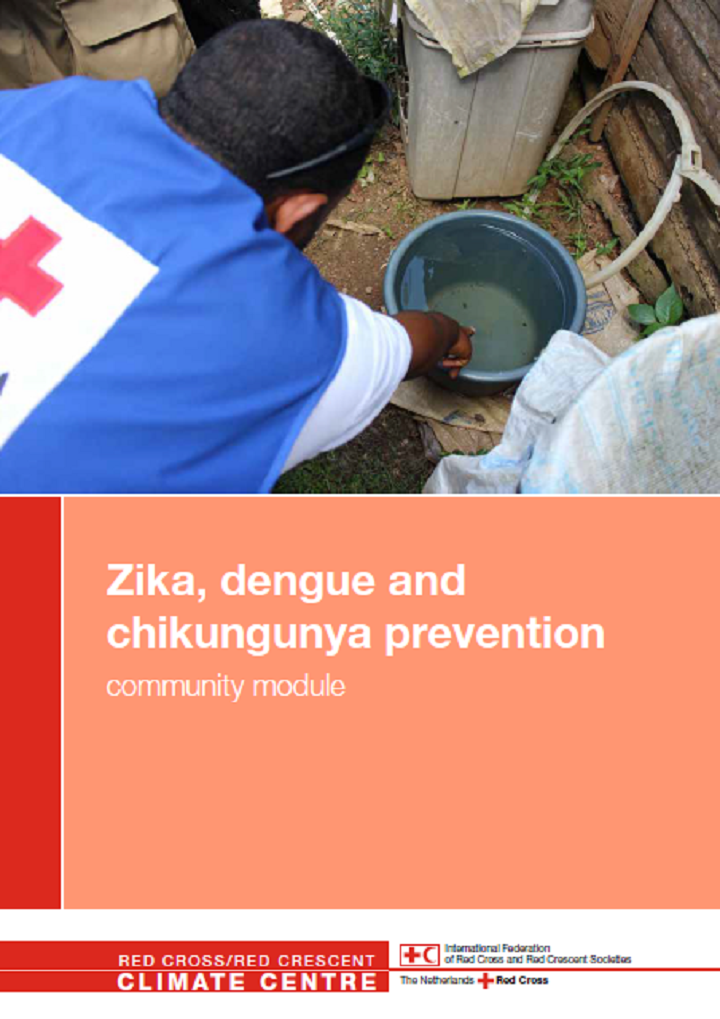Climate Resilient Sanitation Coalition (2025) Climate Resilient Sanitation Infographic
This infographic highlights how climate change threatens sanitation systems and, in turn, public health, ecosystems, and economies. It illustrates ten key impacts - from flooding, storms, and droughts to sea level rise and groundwater contamination- showing how fragile sanitation infrastructure can trigger cascading effects on tourism, marine ecosystems, and essential institutions.
Water for Women (2023) Environmental Indicators of Climate Risks to Inclusive WASH
This learning resource summarises a range of indicators that WASH service authorities and their civil society organisations (CSOs) can use to monitor the key risks of six climate hazards to household WASH access. Specifically, the indicators pertain to changes in the natural or built environment that may be outside the sphere of control of a WASH program.
Water for Women (2022) Knowledge and Practice Gaps in Climate Resilient Inclusive WASH
This report outlines the unique strengths and contributions that Water for Women can make to building climate change resilience and adaptation in inclusive water, sanitation and hygiene (WASH), through contributions to the regional and global WASH sector and enhanced internal capacity.
Water for Women (2025) The Case for Climate Finance Exploring Future Financing Opportunities for WASH CSOs
This learning brief shares key findings and insight into climate finance, including the current funding landscape and its relevance to WASH actors. • The rise of climate finance marks a transformative shift in the global approach to climate change, with significant implications for a wide range of stakeholders • With global reductions in official development assistance, civil society organisations (CSOs) are under increasing pressure to find […]
Water for Women (2025) Integrating Risk and Resilience for Climate-Resilient WASH Programming
This brief shares key findings and insights from the first learning group (1) about integrating risk and resilience considerations for climate-resilient WASH programming. Definitions of climate risk and resilience and the application of the concepts are diverse and still evolving, including for the WASH sector. • ‘Climate risk’ is commonly understood as the potential for an adverse outcome influenced by the climate or a climate […]
Water for Women (2025) The Criticality of GEDSI for Climate-Resilient WASH
This learning brief shares key findings and insights from the third learning group (3) about the criticality of gender equality, disability and social inclusion (GEDSI) for climate-resilient inclusive WASH. • The most marginalised in communities are at the frontline of climate change hazards, uncertainty and impacts – they must be part of decision-making for context-appropriate and sustainable climate resilience solutions. • Transformative GEDSI considers the […]
World Health Organization (2022) Strong systems and sound investments: Evidence on and key insights into accelerating progress on sanitation, drinking-water and hygiene
The UN-Water Global Analysis and Assessment of Sanitation and Drinking-Water (GLAAS) 2022 report compiles new data on drinking-water, sanitation and hygiene (WASH) from 121 countries and territories and 23 external support agencies (ESAs). It serves as a global reference to inform commitments, priority-setting and actions during the second half of the 2030 Agenda for Sustainable Development and for the 2023 Conference for the Midterm Comprehensive […]
WHO and UNICEF (2024) Water and sanitation interventions to prevent and control mosquito borne disease: focus on emergencies
Climate change, conflict and human displacement are all growing in scale, increasing the spread of mosquito-borne diseases. A number of effective water, sanitation and waste management measures exist and can be implemented to prevent mosquito-borne diseases. This WHO/UNICEF technical note provides practical information for implementing such measures with a focus on emergency contexts.
World Health Organization Regional Office for Europe (2024) Strengthening climate resilience in the drinking-water and sanitation sector through the Protocol on Water and Health
Strengthening the resilience of water and sanitation services to climate change is a key priority across the pan-European region. Infrastructure and supporting services are at increasing risk from climate threats, which may compromise the health and well-being of communities. Service providers are actively undertaking measures to reduce greenhouse gas emissions and adapt infrastructure and management strategies to enhance resilience. Climate change considerations are increasingly being […]
Green Climate Fund (GFC) (2024) Annex III: Practical guidelines for designing climate-resilient sanitation projects Water Security Sectoral Guide
The practical guidelines for designing climate-resilient sanitation projects provide a framework for developing projects that address sanitation and climate change, including adaptation and mitigation strategies. It supports governments and development partners seeking Green Climate Fund (GCF) funding for climate resilient sanitation services, which can better cope with and be restored after climate events, while reducing carbon emissions. They mean healthier populations and ecosystems, and contribute […]
Green Climate Fund (2022) Sectoral guide: Water security
Climate change is evident around the globe, and it requires bold actions now to achieve the Sustainable Development Goals (SDGs) and Paris Agreement. In addition, water is one of the world’s most essential commodities and demand for water service has increased tremendously following population growth, economic development and changing consuming patterns. Facing increasing demand for this scarce resource, the global water business seems to offer […]
R. Abdel Sattar; J. Rogla, PhD; T. Veasna; T. Kozole; C. Nicoletti; and J. Harper, PhD, PE (2024) Effects of Climate Vulnerability on Household Sanitation Access, Functionality and Practices in Rural Cambodia
With climate events increasing in frequency and severity, effects on human life, particularly those most vulnerable, are projected to increase in coming decades. Focusing on the effects of floods, storms, and drought, , we investigate how climate vulnerability correlates with toilet dysfunction and abandonment in rural Cambodia using two household surveys, a latrine sales database, two flood-extent maps, and a composite climate vulnerability index. Using […]
SuSanA, University of Technology, Sydney (UTS) (2023) GIZ Webinar: Coffee & Learn Session - Research to Action: Advancing Climate-Resilient Urban Sanitation
The SuSanA Secretariat and University of Technology, Sydney (UTS) were invited by the GIZ Community of Practice "Water and Climate" to a webinar, which took place on the 25th July 2023. This transformative Coffee & Learn session bridges the gap between research and project implementation. As climate change poses an increasing threat to urban sanitation services, it is crucial to stay ahead of the curve with […]
Nilusha Lakmali Patabendi Hetti Thanthri Patabendige Dona (2022) CLIMATE RESILIENCE OF COMMUNITY MANAGED WATER SUPPLY SYSTEMS IN RURAL SRI LANKA
The rural water supply scheme (WSS) in Sri Lanka is threatened by multiple climate risks such as flash floods, droughts, landslides, and salinity intrusion. Those rural water supply schemes are managed by Community-Based Organizations (CBOs) and Local Authorities and offer water to 12% of the people who live in marginalized areas through piped systems. Even though Water Safety Planning (WSP) is introduced as a risk […]
Vharkat, B. (2022) THE MAHARASHTRA GOVERNMENT AND UNICEF PARTNER TOGETHER TO BUILD THE CAPACITY OF WASH STAKEHOLDERS DURING COVID-19
Access to safe water and sanitation is essential for unlocking economic development and improving the health and education of all. Sustainable Development Goal (SDG) No. 6 aims to ensure the availability and sustainable management of water and sanitation for all by 2030. Water Sanitation and Hygiene (WASH) also contributes to numerous other goals, including those relating to nutrition, health, education, poverty, economic growth, urban services, […]
Willetts, J Kumar, A, Mills, F (2022) Urban sanitation and climate change: A public service at risk Landscape study
The study provides recent advances and adaptations in policy, planning and service delivery to better manage climate related risks in urban contexts. It also identifies actionable strategies to support efforts to improve climate resilience in urban sanitation and to strengthen the argument for their implementation
(2022) Report on World Environment Week Maharashtra, India Engaging the youth across Maharashtra through diverse interventions and campaign activities
This report provides details of activities and campaigns organized by UNICEF Maharashtra Department of Technical & Higher Education, GoM, NSS Maharashtra, for raising awareness amongst students and introducing innovative interventions to prevent environmental degradation and harm, across major Universities of Maharashtra, with the support of MVA, DoECC, GOM and Maharashtra Urban WASH-ES Coalition at RCUES of AIILSG, Mumbai. The World Environment Day 2022 […]
Al-Karablieh, Lauri Badi, Maha Halasheh, Ahmad Sobh, Ismail Al Baz, Rania Al’ Zoubi, Hesham Asalamat, Keith Burwell, Jens Götzenberger, Frank Pogade, Gerhard Rappold (2019) Decentralized Wastewater Management in Jordan
The Compendium is available in English and Arabic. It covers the following topics: (A) Decentralized Wastewater Management in the light of Adaptation to Climate Change (B) Domestic Wastewater Reuse in the Context of Decentralized Wastewater Management in Jordan for Climate Change Adaptation (C) Business Models for Decentralized Wastewater Management in Jordan (D) Social acceptance as a priority for sustainable decentralized wastewater systems (E) Orientation Guidelines developed based on the Experiences […]
SanCoP UK (2021) SanCoP 26 Webinar Outline
Title: SanCoP26 / COP26: Sanitation & Climate Change Date & Time: Tuesday 19th October 2021, 10-1 BST Venue: Online
IFRC (2017) Zika, Dengue and Chikungunya Toolkit: Adaptation for Latin America and the Caribbean
The Americas Regional Office of the International Federation of Red Cross and Red Crescent Societies (IFRC), through its Zika Response Team, has adapted an interactive toolkit and teaching guides for Zika, Dengue and Chikungunya Prevention to the regional context by translating the materials to Spanish and adding a Seasonal Calendar for Vector Control to the toolkit. Additionally, the Zika Response Team will host a webinar […]
